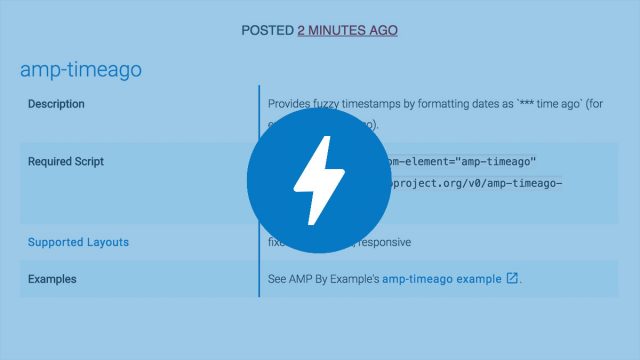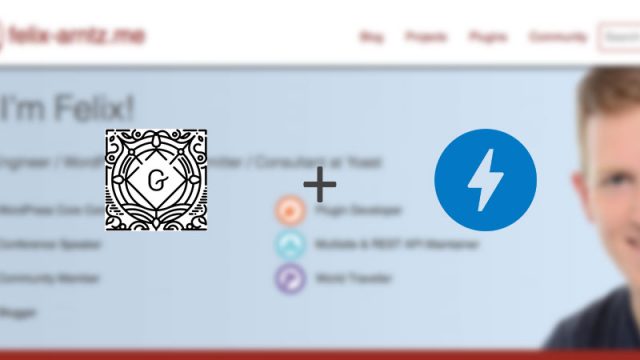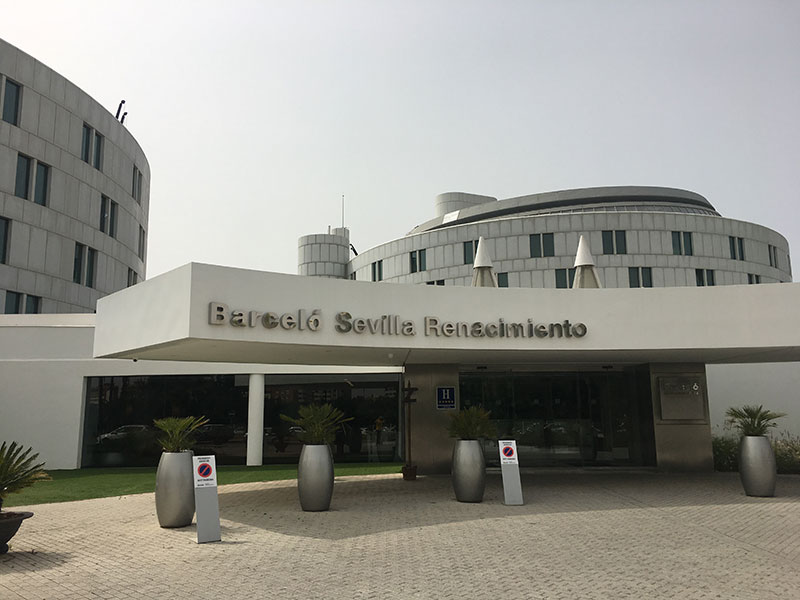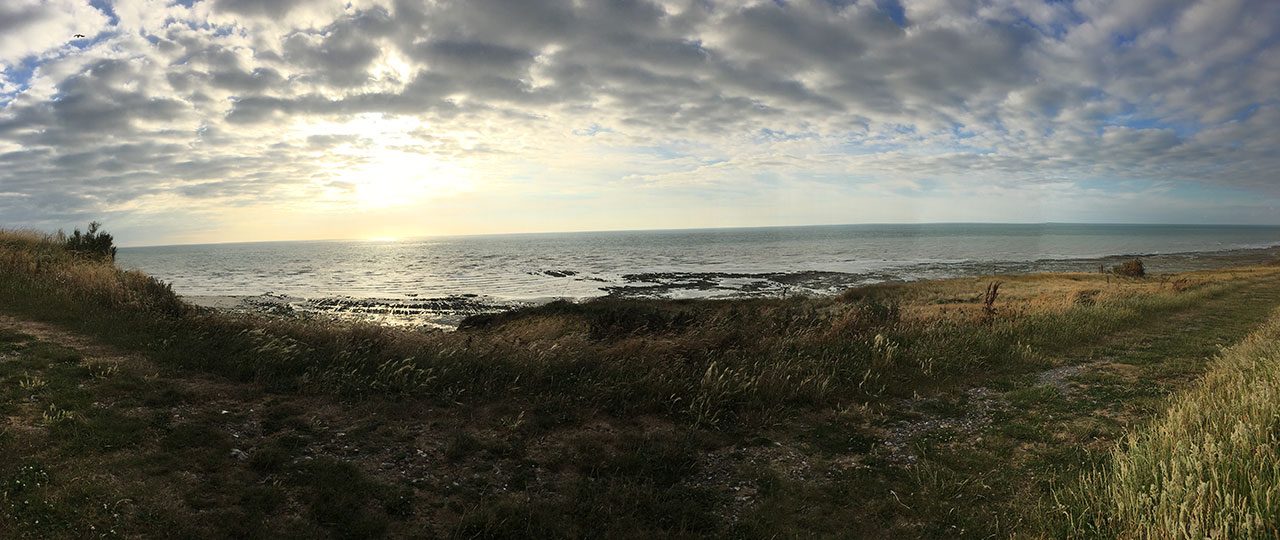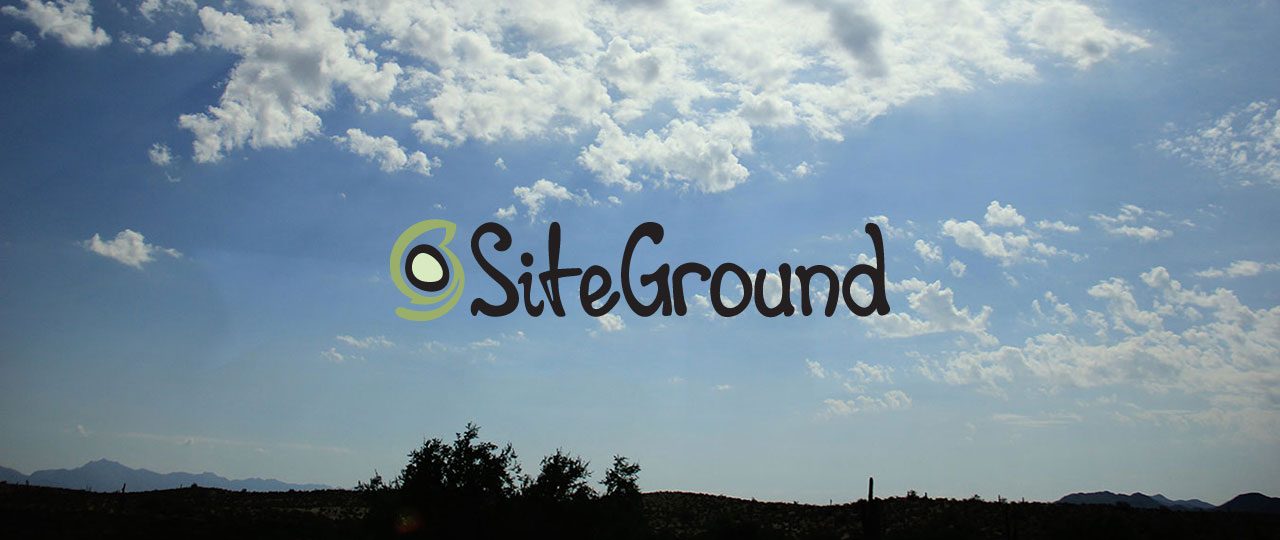In my post about how I renewed my website with Gutenberg and native AMP support I mentioned that I’d be sharing some implementation details. A couple days ago I posted about how I built a reusable section block with Gutenberg. Today we’re going to look at an AMP-specific feature and how I made use of it for my site. While the AMP plugin for WordPress does a great job in ensuring your WordPress site becomes AMP-compatible, there are still tons of additional AMP features to explore, some of which are too specific to generally add support in the plugin. An example of this is the amp-timeago component, which allows displaying relative time periods, pretty much in realtime. In other words, instead of showing a concrete date and time, it will show a string such as “x seconds/minutes/hours/days/weeks/months/… ago” – you get the gist. You can see a live-example of this when looking at when this post was published, just above, below the headline. And this is precisely what we’re going to focus on in this post, how I implemented this feature and how you can implement it for your Native-AMP WordPress site.
Blog
-
-
As I announced in my last post in which I explained how I updated my website using Gutenberg and AMP, I would like to share some more details on specific implementations for some of the block types and AMP support integrations. Let’s start today with looking into building a reusable Gutenberg section block type. What do I mean by this? It is common for websites to have their main content width limited to a maximum, to keep line lengths readable on larger screens. However, sometimes you still want certain components to break out of those limitations, or you might even want to break an entire page into different full-width sections which are differentiated by their visual appearance and allow to host content that itself is then again limited in its maximum width. The homepage of my website makes heavy use of this, if you prefer to see an example, or you can also look at the following example blocks embedded in this post. (Note that you will need a screen with a resolution of at least around 1200px width in order to see the width limits to take effect.)
-
It’s been a while since I last updated my website. I haven’t blogged regularly at all, but also the content generally has gotten out of date and no longer reflected where I am at this point. Most of you probably know the problem, you work on open-source, client projects, and products so much that you forget to update your own hub that should probably, better than anything else, represent your skillset, focuses and achievements. As of now, this website finally is back there for me. Given the increasing amount of new major WordPress features and web technologies, I finally made myself make some time for implementing some of those as part of a refresh of my site. In this post I’d like to tell a bit more about what I focused on.
-
I have a relatively good memory for dates, so I noticed that it was exactly today three years ago that I joined the WordPress community. While I have drastically failed in blogging more over the past year (and I guess I intend to continue that “streak”), I thought it would be a good time for a recap of what happened in the past year since I wrote my last such recap.
-
Writing automated tests for your WordPress project is a must in order to verify that your code works as expected. Of course you should always do severe manual testing for your plugin or theme, but as always, humans aren’t as precise and thorough as computers can be with that. Furthermore having sufficient automated tests (i.e. solid test coverage for your code) also indicates whether a subsequent change, as in a later release, unexpectedly breaks something you wouldn’t have detected otherwise. This post gives you an introduction on the test suite that WordPress core includes, which you can also use to test your plugin for example, but of course too if you’re contributing to WordPress core.
-
Several people have already posted their thoughts and impressions about the new Gutenberg editor for WordPress, to highlight pros, cons and everything in between. Here is my perspective on it.
-
As you may recognize from the title, this post is written in German. That is because its target audience is the German community in particular. It will probably be the only German post on my blog, so please forgive me for doing that. I’m sorry, and I hope you don’t feel left out.
Wenn eine nicht-deutschsprachige Person die Einführung oben gelesen hat, werden meine Entschuldigungen wohl nicht darüber hinweg helfen, dass sie sich möglicherweise von diesem Beitrag ausgeschlossen fühlen. Ich halte dies also für eine gute Einleitung für diesen Beitrag, den ich explizit an die deutsche Community richten möchte: Viele von uns tendieren nämlich dazu, in unserer Komfortzone zu bleiben (#GermanBubble) – was an sich natürlich jedem selbst überlassen ist, aber teilweise ein recht exklusives Gefühl an WordPress Community-Mitglieder aus anderen Ländern vermittelt. In diesem Beitrag möchte ich näher darauf eingehen. Der Beitrag mag an einigen Stellen überaus kritisch erscheinen, doch ich möchte nicht, dass sich jemand vor den Kopf gestoßen fühlt. Ich mag euch sehr und viele von euch sind mir gute Freunde geworden, trotzdem ist es für mich an der Zeit, ein unbehagliches Phänomen, das ich seit längerem sehe, mal öffentlich auszusprechen. Mein Ziel ist es vor allem, ein Nachdenken über die Thematik zu fördern und das eigene Verhalten zu reflektieren.
-
Today is a special one for me: It marks my second anniversary as part of the WordPress community. It was this day two years ago that I was on a plane to Sevilla, excited to attend my first ever WordCamp, WordCamp Europe 2015. It has been an incredible journey for me since then, and I’d like to process and share my experience of what has happened in the past year (I also have posts up for that very first WordCamp and for the recap of my first year).
-
Finally I’m on vacation. Which ironically finally gives me time to migrate my website, something that I have been wanting to do for several months. While you might think that I spend too much time with WordPress, I have to say that there is nothing stressful to me about doing some of the things that I wouldn’t be able to otherwise – rest assured that I’m spending enough time sitting in the sun, dining and doing nothing. ☀️
Alright, the reason I’m writing this post is simply that I would like to share a tiny bit about what I did. This website as well as all my other sites, more or less related (for example I have a cocktail blog y’all should follow) are now hosted on SiteGround (
capital_G_dangit()!). Previously I had all these sites hosted with Google Compute Engine for a little more than a year. This was an interesting experience for me that I had wanted to do, since it allowed me to learn a little more on how all the internals of maintaining a web server setup works, without being too complicated. If you don’t know about Google Compute Engine, it’s basically a lot similar to Digital Ocean, however it runs on Google’s infrastructure and is part of Google Cloud Platform, which can be compared to Amazon AWS. Anyway, all of this helped me learn a lot, but it was also obviously more work than usually, so I’m happy I’m back at a regular host now that keeps things for me simple. Another reason that I’m happy that this experiment is now finally over is that it was quite an expense and oversized for my needs – at this point I’m good moving back to a shared host for this. I would have done that sooner, but then again, I needed a relaxed environment and time to do it. -
If you’re a theme developer, you’re probably aware of the bits and pieces you need to look out for to have your theme be compliant with WordPress standards, for example in order to get it to appear in the wordpress.org themes repository. A theme is pretty much a separate unit within the infrastructure of a WordPress setup, it uses several specific functions that WordPress core provides and may also use some markup that is already part of core, such as a default search form or pagination. What is less commonly known though is that there are also things to look out for to make your theme fully compatible with the Multisite feature of WordPress. It’s nothing complex for most cases, but it is often overlooked. I’ll highlight the two special requirements in this post.
